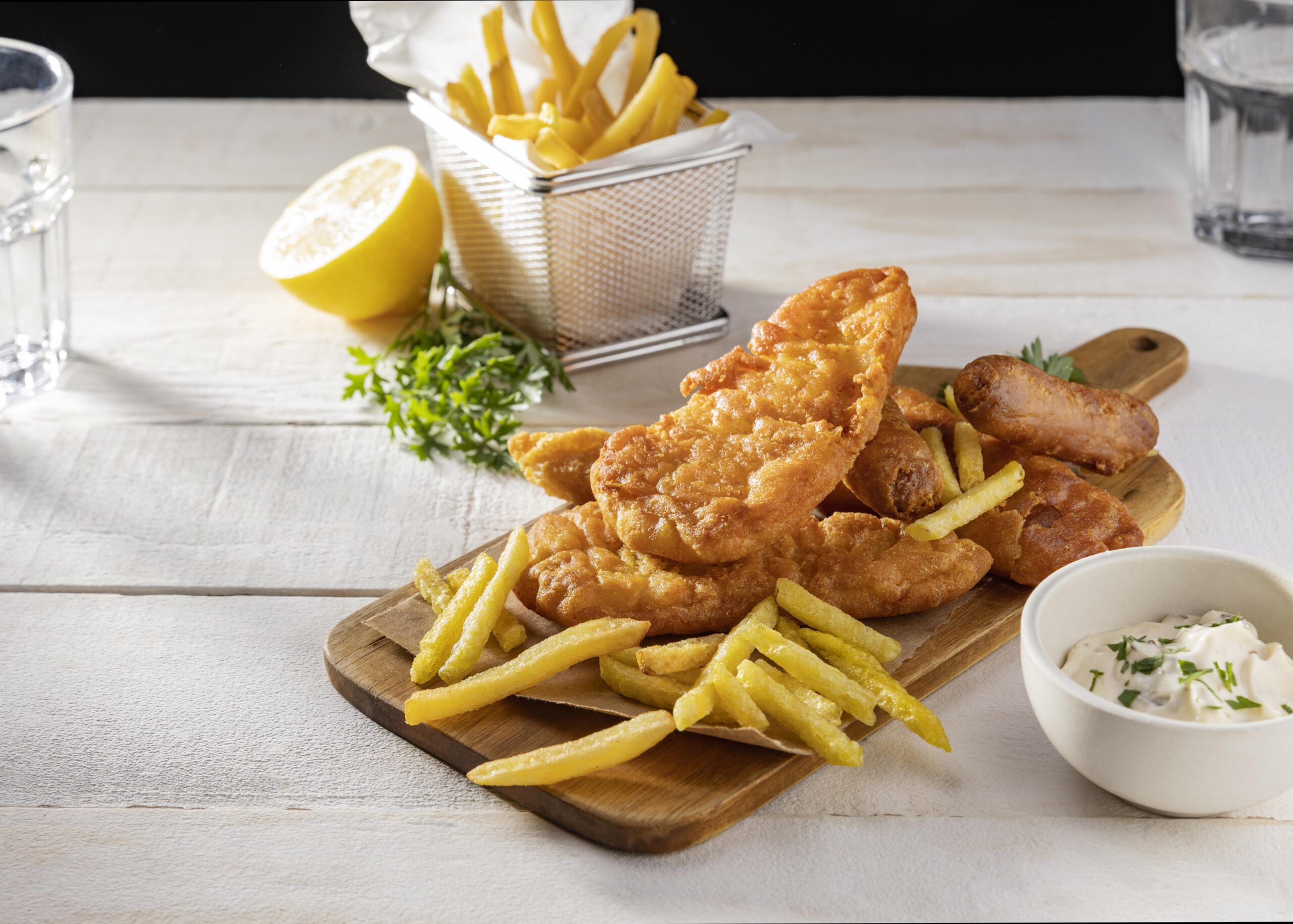In today’s food service landscape, minimising waste is important. That is not only for economic reasons but also for environmental sustainability. Fish and chips shops face unique challenges. They struggle to manage waste well. This is due to their perishable food and the high volume of takeaway packaging. Meeting these challenges needs new strategies. They also need a commitment to sustainable practices. These practices cut costs and make operations greener and more efficient.
1. Optimize Portion Control
Accurate portioning cuts food waste and boosts profits. It does this by controlling costs and ensuring consistent serving sizes. In fish and chips shops, efficient portion control means standardizing fish, chips, and sides sizes. It involves using tools, training staff, and checking portions. This approach reduces waste and ensures customers get what they pay for.
2. Source Sustainable Ingredients
Sustainable sourcing is key for less waste in fish and chips shops. Choosing suppliers who fish and farm sustainably cuts impact. It also boosts ethical business. Look for MSC certification for fish. Pick local suppliers to cut emissions and support the economy.
3. Implement Effective Inventory Management
Effective inventory management is crucial for reducing waste in fish and chips shops. Maintain accurate stock levels, monitor expiry dates, and rotate the. It will help to use older ingredients first, shops can minimise food spoilage and overordering. Utilising inventory management software can streamline these processes. It will provide real-time data to make informed purchasing decisions and avoid unnecessary waste.
4. Offer Flexible Menu Options
Providing flexible portion sizes and menu options caters to varying customer appetites. It will also reduce food waste. Shops can manage inventory better and reduce waste. They can do this by having smaller fish and chips and offering sides as extras. They can also promote customisable meals. Review customer feedback and sales data often. Use them to adjust menus. This ensures menus match what customers want and minimises leftovers.
5. Educate Staff and Customers
In fish and chips shops, training staff to reduce waste is vital for sustainability. They should learn about portion control, proper food handling, and recycling. Additionally, customers should be encouraged to choose sustainable options. This can be done through signs, notes on the menu, or online messages. It shows the shop’s commitment to waste reduction.
6. Utilize Food Waste for Other Purposes
Reusing food waste and by-products can cut waste in Fish and Chips Shops. It does so creatively. Consider initiatives. For example, compost potato peelings or fish trimmings. Or, partner with local farms for animal feed. Or, collaborate with food banks to donate excess food. Highlight successful case studies or testimonials from similar establishments. They used innovative waste reduction strategies. These inspired staff and customers to join in sustainability efforts.
7. Sustainable Packaging:
It greatly cuts environmental harm. To do this, we must encourage fish and chip shops to switch from plastic to biodegradable items. Recommending the switch from polystyrene trays to cardboard trays. Also, using paper or newspaper wraps instead of plastic can lower waste. Additionally, suggesting replacing plastic bags with paper ones. Also, suggesting replacing plastic forks with biodegradable ones. These ideas promote sustainability. For example, suggest using wooden forks. The changes show a commitment to eco-friendly practices. They also match consumer preferences for sustainable packaging.
8. Creative Menu Planning:
To minimize food waste, chip shops can use creative menu planning. They can repurpose leftover ingredients in clever ways. For instance, surplus fish can be transformed into fish cakes or used as filling for fish pies. Excess chips can be reinvented as loaded fries or repurposed into hash browns. Sharing success stories from other restaurants can inspire fish and chip shop owners and chefs. These restaurants have successfully used similar strategies. These stories can show how clever menu planning cuts waste. It also adds menu variety and pleases customers.
9. Track and Analyse Waste Data:
It is crucial for waste management. Shops must keep detailed records of their waste. By tracking this data, shops can find patterns. They can also pinpoint areas to improve and measure progress over time. Shops review waste reduction efforts often. They adjust strategies based on data insights. This iterative approach ensures continuous improvement in waste reduction. It leads to both environmental benefits and cost savings.
10. Collaborate with Suppliers and Peers:
Working closely with suppliers is key. It reduces packaging waste and helps explore sustainable packaging options. Fish and chip shops can work with suppliers. They can get packaging materials that are recyclable or compostable. This minimizes environmental impact. Also, working with other local businesses offers chances to share best practices. We can learn from each other’s experiences and work together towards sustainability goals. Join industry groups focused on sustainability. They offer extra resources and networking opportunities. You can use them to share ideas. You can also stay informed about the latest developments in sustainable practices.
Read More: Popular Frozen Chips Brands used by Fish and Chips Takeaways in the UK
Conclusion:
In conclusion, fish and chips shops must adopt sustainable practices. This change is crucial for cutting environmental impact and improving efficiency. Shops can cut waste a lot and still meet customer expectations. They can do this by using strategies. These include: controlling portions, using sustainable ingredients, and finding new uses for leftovers. Also, switching to biodegradable packaging and tracking waste data are such initiatives. They let shops make informed choices. These choices support long-term sustainability goals.
We also invite readers to share their insights and experiences in waste reduction. This will foster a community of shared learning and innovation. For more advice or consultations on sustainable practices, feel free to contact Pentagon Food Group at Pentagon Food Group. Together, let’s make a positive impact on our environment while enhancing business sustainability.






